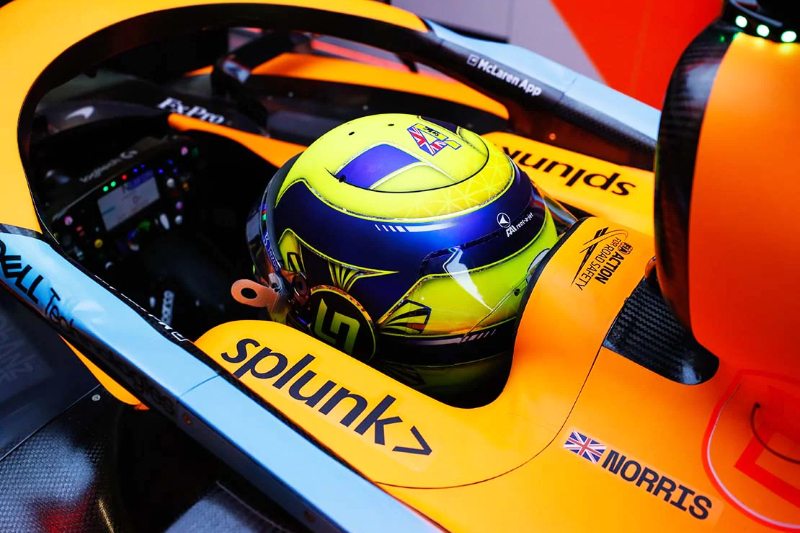McLaren is an inspiration to auto enthusiasts everywhere. Its racing team did well at the Singapore Grand Prix this year; and one of the reasons for their success is McLaren’s laser focus on the use of data.
McLaren’s drivers, like their competition, practise their laps by seating behind simulation consoles. However, their goal to beat the rest or to break their own record depends on the level of efficiency in the use of data.
Each racing team works with world-class engineers and knows that data is part of the winning formula. In fact, racing is increasingly reliant on data to make split-second decisions; and akin to businesses, winning in different markets under changing economic conditions is similar to racing teams on different tracks under different weather conditions.
If everyone is tapping on data to increase their chances of winning, then what gives McLaren their edge? It was less to do with the data itself and more to do with their ability to understand that data and turn it into actual race track results.
The renowned racing team’s race cars have more than 300 sensors monitoring key metrics such as brake, gears, fuel level, tire pressure, speed, and battery health. Every second, about 100,000 data points from these sensors are generated.
All the telemetry from the car, along with data from the strategy team, McLaren’s own wind tunnels, and more flow into a powerful data platform which crunches petabytes of data to generate useful insights for the driver, the team’s mechanics, and its engineers.
However, synthesising and understanding this data can be a challenge – as it is for business leaders. According to Splunk’s Economic Impact of Data Innovation 2023 Report, 67% of data innovation leaders believe that their data is growing faster than their ability to keep up.
Putting data to work
In the past, there was less data — and what was available couldn’t be analysed in the way data can be analysed now.
Thanks to intelligent platforms, data from races have become more accessible. Splunk’s partnership with McLaren, for example, allows them to crunch data not just from F1 races but also from Grand Prix races and esports events, all to help provide intelligent insights to everyone in real time.
What it looks like behind the scenes is this: The data fed to Splunk can be seen by racing teams on a dashboard that can allow various settings (speed, tire pressure, etc.) to be manipulated. This allows simulations to mimic real-life conditions and race car performance, and enables racing teams to test what combination will get them the results they need to win.
In essence, data companies are able to harness the power of machine learning, automation, and orchestration to help racing teams like McLaren tap into unstructured data across distributed sources, at scale, and generate insights faster.
The data platform allows users, who are not data scientists, to better understand data and potentially search for answers through the data presented to them. In short, the platform actually democratises data and allows race teams to get innovative.
Like McLaren’s racing business, business leaders operationalise and monetise their data — and the more they do it, the bigger the rewards they reap. While racing teams aim to shave seconds off their lap times when they leverage data, business leaders can potentially add up to 9.5% to their gross profit by doing the same.

The focus on data and simulations has actually gone mainstream — and monetising data intelligently is what’s making racing an important category in the esport space, forcing even the most experienced racers to take to the gaming console to improve their performance.
Leveraging data in esports and in business
A couple of years ago, Goldman Sachs forecasted that esports will be bigger than Major League Baseball and the National Hockey League, and this seems to be true already. According to Nico Partners, one of the leaders in Asian games market intelligence, Asia is the world’s largest and most important region for esports, accounting for more than 57% of the US$1.1 billion global esports market. At the 2022 Asian Games, esports is among the 37 games that will be played. Some of the biggest players are doing everything in their power to move esports into the metaverse where today’s immersive games will come alive in full colour.
Data is powerful, and it has been proven that data-savvy organisations are more profitable, resilient, and innovative. In the world of business, data leaders make better decisions and are more profitable. In the same report mentioned earlier, leaders are 5.7 times as likely to say their organisation almost always makes better decisions than competitors, and 58% of leaders say they beat their most recent fiscal year revenue goals by 7% or more.
Choosing the right data enablers to win
The fact is, be it in professional sports or in business, data leaders are more resilient, have a leg up on the competition, and are just more hopeful and positive. About 77% of data leaders, for example, say their organisation is in a very strong position to compete and succeed in their markets over the next few years — 4.5 times the 17% of those just starting off with data who feel the same way.
McLaren is clearly a data leader. They know that the racing industry is at an inflection point and the line between real and virtual races is blurring. Technology is the only thing keeping the rubber firmly on the asphalt, and like in the world of business, leveraging the right data enablers will help win the edge they need.
















